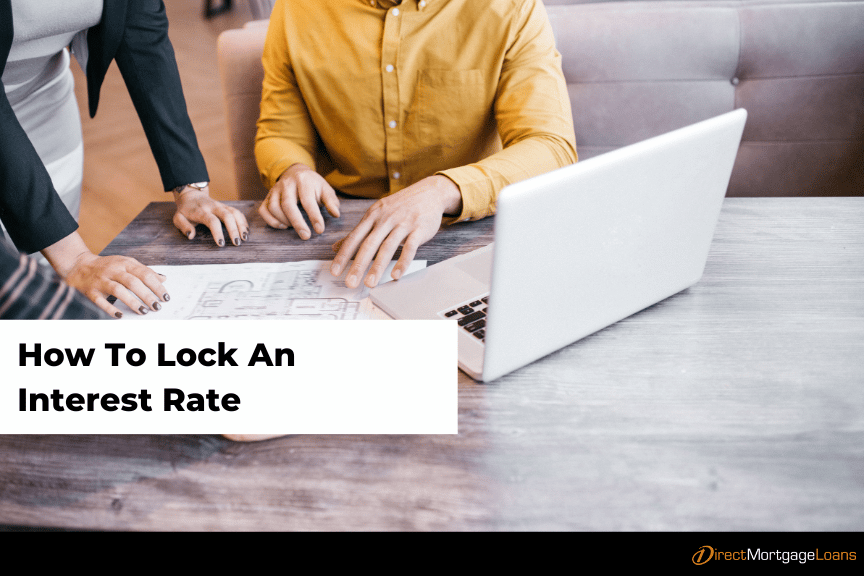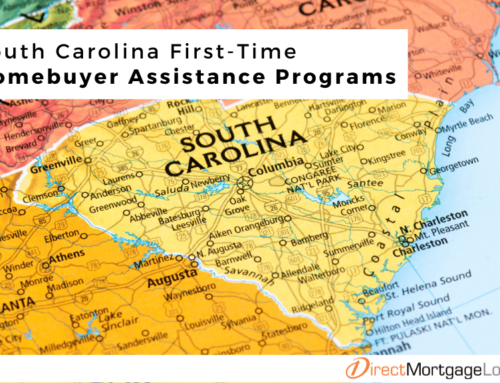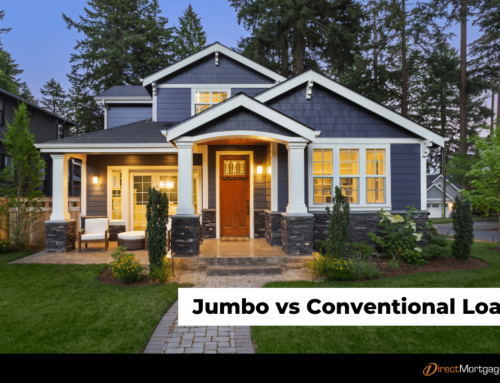Your mortgage interest rate is a big part of buying a home, and even a small change can affect how much you pay each month. Here’s the deal: part of the mortgage process involves locking in the interest rate at some point. The tricky part? Figuring out the perfect moment to do so. Some factors that could affect interest rates included Federal Reserve reactions to economic changes, shifts in consumer demand, and the availability of housing.
Because of these factors, many people choose to lock in their mortgage rate. Let’s take a closer look at mortgage rate locks to help you make a wise choice in today’s fast-paced real estate market.
What is a mortgage interest rate lock?
Picture this: you’re shopping for a new home, and you’ve just spotted the perfect place. The last thing you want is for your dream home to slip away because of rising mortgage rates. That’s where a mortgage rate lock swoops in to save the day. It’s like a security blanket for your interest rate, keeping it from playing the up-and-down game.
From the moment you apply for a mortgage to the day you seal the deal on your new home, those rates could be all over the place. But with a rate lock in your arsenal, you can stroll through the home buying process without losing sleep over rate spikes.
Now, here’s the flip side: if you lock in a rate and the market decides to take a turn, you might not be able to take advantage of those lower rates. However, there are scenarios where you could take advantage of a lower rate. It all depends on how much the market fluctuates. In cases where rates have taken a nosedive since your initial lock, and it’s before the closing date, you can consider renegotiating your rate lock. This is why it’s essential to have a heart-to-heart with your loan officer. They’re like your personal rate guardians, guiding you through this maze of interest rate decisions.
At Direct Mortgage Loans, we’ve got something called a “float down policy.” It’s like a get-out-of-jail-free card that can snag you that lower rate even if you’ve already locked in.
Contact a Mortgage Rate Lock Expert to Learn More!
How do mortgage rates work?
When financing a home, you will make a monthly mortgage payment. It’s important to understand how these payments work and what they are made of. Part of what makes up your mortgage payment is repayment of the home and part of the payment is interest, taxes and insurance.
Many factors such as your credit history, down payment, financial portfolio, the economy, and more will determine your interest rate. Mortgage interest rates fluctuate constantly depending on the market. Here are a few common factors that affect mortgage interest rates:
Economy
Yep, the overall economic health of the nation can send mortgage rates on a rollercoaster ride. A strong economy may lead to higher rates, while a shaky one might see them drop.
Federal Rate Changes
When the Federal Reserve decides to adjust its rates, it sends ripples through the financial waters. It’s like a stone dropped into a calm pond, creating a series of interconnected waves that touch various aspects of the economy. Among these, one of the most noticeable effects is on mortgage rates.
You see, the interest rate on your mortgage isn’t just a random number that lenders pick out of thin air. It’s intricately tied to the broader economic conditions and the Federal Reserve’s monetary policies. So, when the Fed decides to raise or lower its rates, it sets off a chain reaction, however typically these changes may already be implemented in the conforming Freddie Mac and Fannie Mae rates.
Mortgage Demand
Supply and demand are at play here too. When the demand for mortgages is high, rates might climb. Conversely, a dip in demand can lead to lower rates.
How long can I lock in a mortgage rate?
The amount of time your rate is locked depends on your specific situation. Regardless, the rate will be locked for a specific time period. Your loan program, your location, and your mortgage lender are all factors that determine the amount of time your rate is locked. A general estimate for the time your rate will be locked is between 20 to 60 days, typically these are offered as 15, 30, 45 or 60-day rate locks. Need a rate lock longer than 60 days? Speak with your Direct Mortgage Loans loan officer to discuss your options.
At Direct Mortgage Loans, we have a Lock-and-Look loan program that allows you to lock your rate for up to 75 days while you house hunt. It’s like having extra time in your pocket to find that dream home without the anxiety of rate fluctuations. This is a new, robust program and only offered by working with us!
When can you lock in a mortgage interest rate?
You can typically lock in a mortgage interest rate once you’ve found a suitable property, and your contract is ratified for home purchases. Otherwise, you’ll need to use the Lock and Look program to hold the rate while home shopping.
It’s important to note that your rate lock comes with an expiration date. Once this date passes, your interest rate may start to fluctuate, either increasing or decreasing, even if you haven’t completed your refinancing or home purchase.
Lock in your interest rate and shop with confidence. With our Lock and Look program, you can lock in today’s interest rate for 45-75 days while you look for a home. Then, if rates go up, you’re still eligible for your lower locked-in rate. If rates go down, our float down policy may allow you to take advantage of the lower rate.
To determine whether it’s advisable to lock your rate immediately, ou should consult your loan officer for advice, like you would consult a Doctor for medical advice, or a lawyer for legal advice.
If rates have been steadily rising, it might be in your best interest to lock your rate as soon as your mortgage or refinance gets approved. On the other hand, if rates are on a declining trend, you may consider “floating” your rate, meaning you don’t lock it in, which could potentially be a benefit in the end.
Just keep in mind that no one can predict what rates will do. Floating your rate can be risky; even a small increase in interest rates can cost you thousands of dollars over the life of your loan.
Deciding If You Should You Lock in Your Mortgage Rate
Determining the right moment to lock your mortgage rate can be tricky. It’s advisable to have a thorough discussion with your loan officer, as they can provide insights and monitor market trends to help you make an informed choice.
How To Lock In A Mortgage Rate
1. Set Up Your Account
Once you’ve made the decision to purchase a new home or refinance your existing one, the first step is to have a conversation with your loan officer. They will ask you a few questions about your income, debt, and assets. If you haven’t already, you’ll need to create an account by downloading the DML App.
2. Compare Mortgage Loans
Take some time to research the current interest rates and potential monthly payments by utilizing our mortgage calculator. Customize the figures to align with your budget and financial goals.
3. Submit Your Mortgage Application
When you’re satisfied with your chosen mortgage solution, it’s time to proceed with the mortgage application process for the specific financing option you desire. Ensure that you provide all the necessary documentation and personal information required.
Haven’t started your application process?
4. Lock in Your Interest Rate With Your Loan Officer
After receiving approval from your lender and confirming that you’re content with the interest rate offered, you can proceed to lock it in. Once locked, you can relax and await your scheduled closing date.
If you have any questions about mortgage interest rates or the process, then connect with a direct mortgage lender today!
Mortgage Rate Lock FAQ’s
What if I lock in a rate and it goes down?
Typically, once you’ve locked in your rate, you’re committed to it. However, with Direct Mortgage Loans, there’s a chance you could take advantage of our float-down policy. This means that if rates drop, you may be able to get the lower rate. So, no matter which way rates move, you have options to make sure you get the best deal.
Contact Us for More Information
Is there a fee to lock in a mortgage rate?
Typically, there are no fees to lock your mortgage rate, however there may be fees if you’re requesting a longer-term rate lock. It’s crucial to understand all the costs involved if you’re requesting a longer-term rate lock.
Can you back out of a mortgage rate lock?
Life can be unpredictable, and circumstances can change. If you need to back out of a rate lock, it’s essential to communicate with your lender immediately.
What is the latest you can lock in a mortgage rate?
Timing is essential, and it’s wise not to wait until the last minute. Most rate locks should be done before you’re within 30 days of closing. Beyond that, you might end up paying higher rates.
Is there a difference between a rate lock and a rate float?
Yes, there is a difference between a rate lock and a rate float. A rate lock guarantees a specific interest rate for a defined period, while a rate float allows you to wait for potentially lower rates but carries the risk of rates increasing. Discuss both options with your Direct Mortgage Loans loan officer to determine which suits your needs.
Can you go with a different lender after locking rate?
While the idea of shopping around for the best deal might be tempting, it’s often wiser to stick with your original lender once you’ve locked in your rate. It can provide you with a more straightforward process and potentially save you money in the long haul. Plus, you might lose out on the rate you locked in initially.
Eligibility and approval is subject to completion of an application and verification of home ownership, occupancy, title, income, employment, credit, home value, collateral and underwriting requirements. Direct Mortgage Loans, LLC NMLS ID# is 832799 (www.nmlsconsumeraccess.org). Direct Mortgage Loans, LLC office is located at 11011 McCormick Rd Suite 400 Hunt Valley, MD 21031. Equal housing lender.






Leave A Comment
You must be logged in to post a comment.